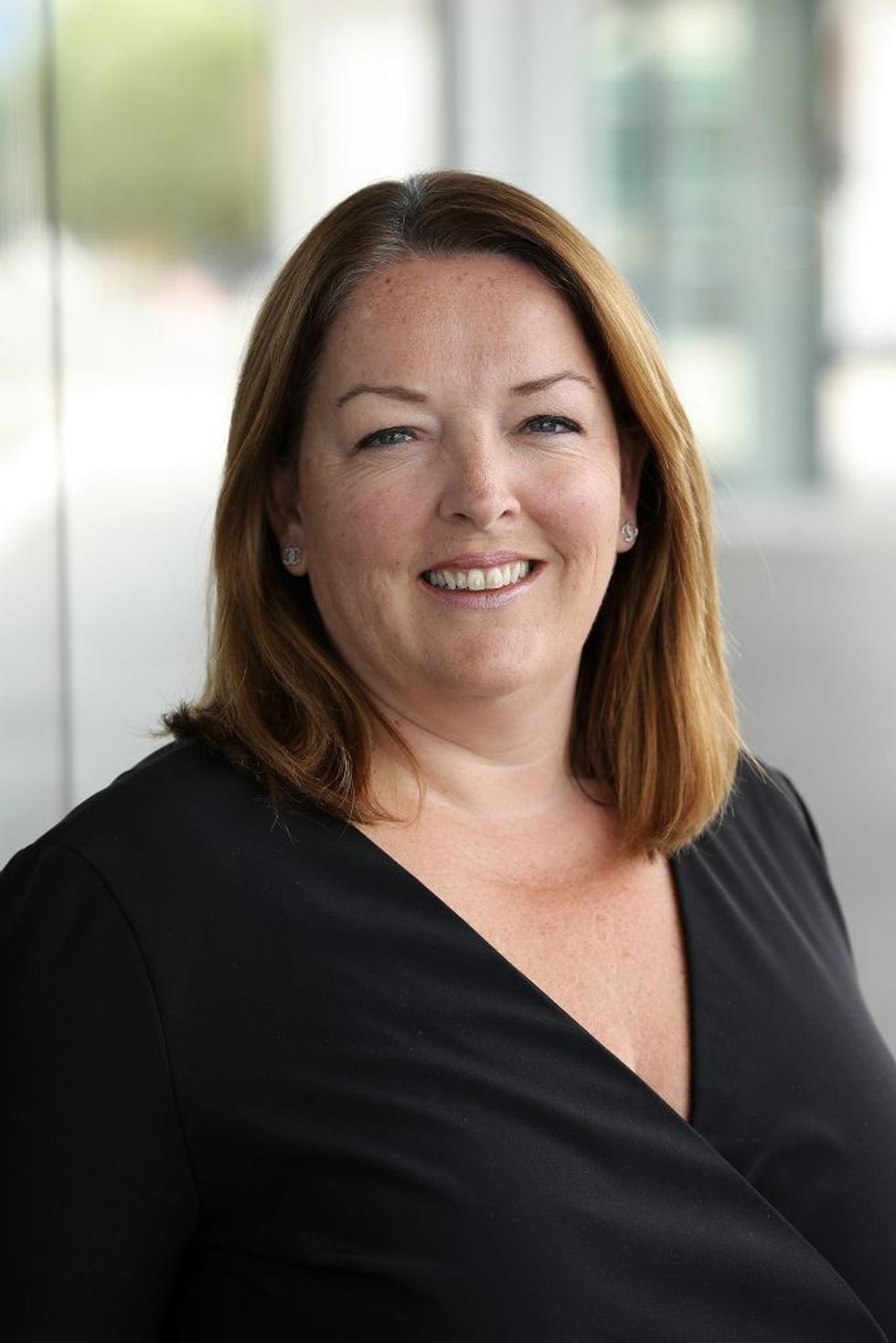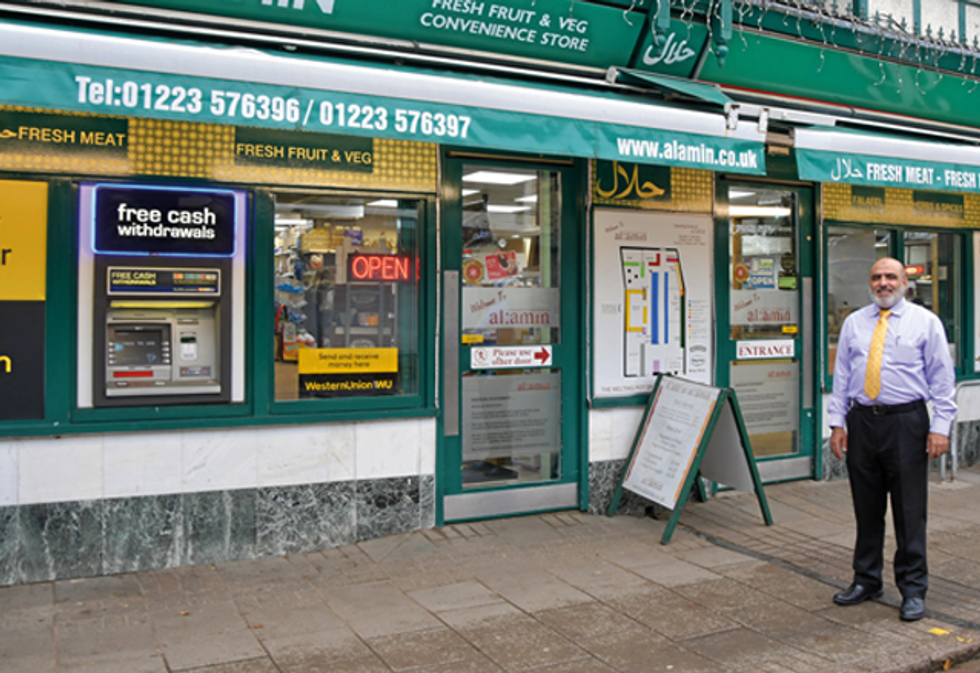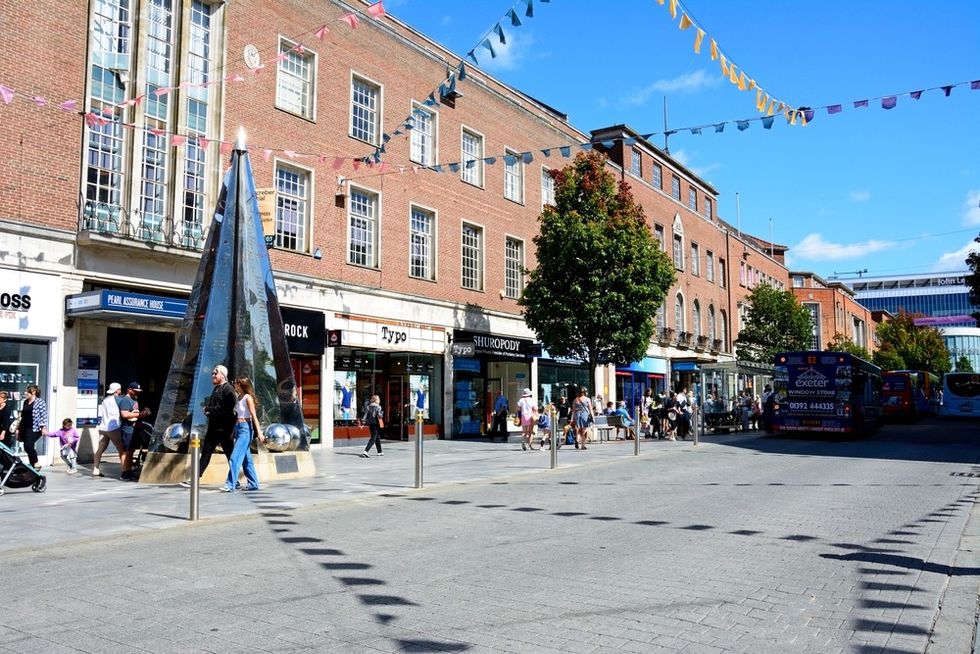An exclusive look at the challenges and opportunities for retail businesses, as revealed in the Future of the High Street report the Federation of Small Businesses.
Supporting pop-ups for new businesses, creating mobile phone-based loyalty programmes and helping bricks and mortar businesses improve their online presence are some of the recommendations set out to revive the UK’s villages, towns and city centres, in a major new report by the Federation of Small Businesses (FSB).
The Future of the High Street report builds up a picture of small firms in and around the high street, including the retail sector, and sets out a vision to help transform high streets into places that meet future needs and support the next generation of entrepreneurs.
The report revealed that the biggest risks for local high streets, according to the retail businesses based on them, were falling consumer spending (74%), rising online shopping and delivery services (55%), plummeting footfall (53%) and crime or anti-social behaviour (48%).
Almost two thirds (63%) of local retail and wholesale small businesses say a diverse range of independent businesses is one of the most important factors for the future of their local high street.

Tina McKenzie, policy chair at the FSB, notes that these businesses also need to be “well equipped” for the future.
“The retail and wholesale sector has been hard hit in recent years, with pressure from the cost-of-living crisis, as well as increasing energy and supply costs and the tightening of consumer purse strings,” she says.
“On top of this there’s been seismic changes on the retail scene in recent decades, with the growth of chain stores, the introduction of out-of-town retail and the arrival of the internet all making their mark. Our high streets continue to evolve and that’s why it’s so important that small businesses at their heart are well equipped for the future.”
The report, which features in depth analysis following a large-scale survey of small businesses, suggests a specialised fund to support mobile phone-based loyalty programmes for high street firms and launching community-specific online marketplaces to showcase local shops and services.
Loyalty schemes tailored to local retailers and communities can encourage repeat visits, higher spending, and a stronger sense of connection between shoppers and their high street. The research found that some sectors on the high street are more likely to offer and make use of these loyalty schemes such as food and beverage businesses (36%) and retail (22%).
The business group’s report is also calling for local authorities to finance support for pop-ups, markets, and temporary use initiatives for first-time businesses to encourage new ventures and help them set up on the high street. This could benefit business owners who are already utilising the benefits of social media to create businesses and interact with customers, but who want a physical presence on the high street.

Sheri-Ann Bhim started her online business during the Covid-19 pandemic, creating and selling greetings cards and gifts online. Currently selling online from her home in London allows her time to engage with her customer base across the country and develop her products.
The entrepreneur has considered expanding into a retail store that would provide her with storage space but is put off by the challenges that come alongside a physical shop, like “business rates and other overheads”.
“The high street seems so volatile in comparison to online. Yes, online sales can go up or down, but you don’t have as much investment or overheads in comparison to being on the high street,” Bhim says.
“It would be great to have more use of flexible space on the high street. I would love to have a pop-up shop from February to June, so from Valentine’s Day to Father’s Day and maybe two months ahead of Christmas as they’re busy periods for card sales. In the summer when my business isn’t so busy another small independent retailer could take over.”
The future of the high street “needs to be flexible” she adds. “It won’t be the same bricks and mortar businesses that have been there for 200 years, it will have a range of businesses that change with the season. We need to move away from long leases - flexibility is key.”
The integration of physical high street presence with online commerce is vital for the survival and growth of small businesses. With 39 per cent of local businesses selling to their customers via their own website it’s important that high streets remain competitive and appealing to consumers via their online presence.

Abdul Arain, owner of Al-Amin grocery store in Cambridge, emphasises the importance of small independent firms being helped to showcase their businesses online.
“Traditionally we have shops on the high street that are independent, then you have [stores like] Tesco Express and Sainsburys, which have a much stronger corporate identity and are more visible. If they want high streets to have a variety of businesses, something needs to be done to allow local businesses to be recognised for what they are offering. That would be powerful and could have large gains for small businesses,” he says.
FSB’s report suggests support could range from basic online marketing and advertising strategies, to utilising online platforms for retail only businesses. To help bridge the gap between more traditional retail and digital marketplaces, a fund could be introduced to support businesses develop their own websites and e-commerce operations.
“As well as core recommendations targeting fundamental issues for small firms on the high street, including business rates, transport and parking, this report also lays out innovative asks to ensure these businesses can survive into the future and ultimately help revive our town centres,” McKenzie says.
“High streets must be helped to evolve to changes in consumer behaviour as well as how small firms want to work. Introducing loyalty schemes should encourage local businesses to collaborate and incentivise consumers to shop, eat, and drink locally.
“We heard from many online small firms who want to take steps to open up in a bricks and mortar premises on the high street and this is exciting to hear. These businesses need support to make that change – and should be given the flexibility to access pop-up and temporary units.”
According to the report’s other findings, empty units are a major blight on shopping streets across the UK, with more than two thirds (69%) of local businesses reporting them on their nearby high street. FSB is asking for a band of on-site high street chiefs responsible for the growth and wellbeing of high streets across the country, creating promotion plans and monitoring vacant units within their area.

The research also highlights the need for well-maintained and accessible modern public toilets and family-friendly services like creche facilities, encouraging visitors to stay longer, upping footfall and supporting the local economy.
Business rates remain a huge burden on high street small businesses, with the current Small Business Rate Relief (SBRR) a key part of their survival. Half (50%) of local retail and wholesale small businesses say they would not survive without SBRR. With more than half (54%) of high street small businesses claiming they would invest in or grow their businesses if the SBRR threshold was increased from £12,000 of rateable value to £25,000, FSB believes doing so would be a crucial step in allowing small firms to further foster growth.
The report calls for a high street hop scheme providing free bus fares on key routes during peak shopping days to help increase footfall. Offering free parking on at least two Saturdays and two additional days a month, would bring in more visitors and support local businesses by making high streets more accessible, it adds.
A third (34%) of local retail and wholesale small firms say a reduced ability to accept cash payments in the future would pose one of the biggest risks to their local high street. The report calls for a Banking Hub Setup Fund, paid for by high street banks to cover the cost of setting up a hub on a high street, supporting local economies and ensuring essential financial services remain available to businesses and the community.
“Our small businesses are an integral part of the high street and will be central in leading the transformation of their local economies. By providing the infrastructure, flexibility and digital connectivity that modern businesses demand, high streets will then have the resources available to become resilient, dynamic hubs ready for the future,” McKenzie concludes.





